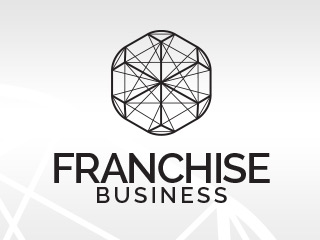
Franchising and the automotive industry
While you probably associate franchising with the retail industry and household brand names such as McDonalds, Gloria Jeans and Bakers Delight, the automotive industry is another key industry regulated by the Franchising Code of Australia, writes Eric Louca.
In fact, since 1998, when the Trade Practices Act 1974 (Cth) was amended to prohibit unconscionable conduct in small business transactions and the Code was made mandatory under the Act to address significant disputation occurring in the franchising sector, the Code expressly provides that a ïmotor vehicle dealership agreementÍ is taken to be a franchise agreement and hence subject to the Code.
What constitutes a motor vehicle dealership under the Code?
A motor vehicle dealership is defined under the Code as a business of buying, selling, exchanging or leasing motor vehicles (defined in the Code to include motor cars, motor cycles and motor boats) that is conducted by a person other than a person who is only involved as a credit provider, or provider of other financial services, for the purchase, sale or exchange.
Motor car and motor boat dealerships are a common type of franchise within the motor vehicle franchising industry. Accordingly, they are afforded the protections contained within the Code for franchisees and have the right to receive a Disclosure Document (in the form required by the Code) when entering into, or renewing, a dealership agreement. The Disclosure Document sets out key business and legal information in relation to the franchisor (i.e. the car or boat distributor).
Within the automotive industry more broadly, the automotive aftermarket is another industry area regulated by the Code. Indeed, major businesses within the automotive aftermarket have utilised the franchise business concept to grow their brand and the strength of their intellectual property. Such businesses include Autobarn, Snap-on Tools, Goodyear Autocare and Pedders Shock Absorber Services [see main article].
The Code and the Ketchell decision
As of 1 March 2008, all franchisors were required to make significant changes to their disclosure document in order to fall in line with the Code.
One critical Code change in the context of motor vehicle distribution is that foreign franchisors are no longer exempt from the application of the Code. The elimination of this exemption from the Code has far reaching implications for motor vehicle distribution in Australia as the disclosure obligations faced by Australian distributors now also apply to the foreign distributors.
Accordingly, dealers can expect to receive either two disclosure documents, one from the foreign distributor and one from the Australian distributor, or a joint disclosure document from the foreign and Australian distributors. Compliance by the foreign and Australian distributors with the obligations imposed by the Code is critical in light of the recent in the case of Ketchell v Master of Education Services Pty Ltd [2007] NSWCA 161. This decision, unless successfully appealed to the High Court, could result in any dealer agreement being deemed void if a dealer can establish any technical non-compliance with the Code by the foreign or Australian distributor.
Minimum dealer standards
In the context of motor vehicle dealers, there are certain key areas a motor vehicle dealer must be cognisant of, both when entering into, and during the term of, the dealership agreement. These include:
1. the term of the dealer agreement being aligned with the capital investment of the dealer;
2. facility upgrade requirements bearing a relationship with the dealer’s term under the dealer agreement;
3. termination without breach by the dealer on reasonable written notice, which notice may vary depending on factors such as initial capital investment and facility upgrade requirements;
4. exclusivity of prime market areas and/or a restriction on the vehicle distributor unilaterally changing a dealer’s prime market area;
5. unilateral variation to the dealer agreement generally;
6. the vehicle distributor’s policies and procedures being disclosed in full prior to the entry into of the dealer agreement; and
7. compliance by the vehicle distributor with the Code.
HWL Ebsworth has brought together some of AustraliaÍs leading automotive industry experts to form a specialised Automotive Industry Group within the firm. It acts for the MTAA, the AADA, numerous national dealer councils, leading automotive dealers, and for clients in the automotive aftermarket. Please contact either Robert Gardini (Partner) on (02) 9 334 8612 or Eric Louca (Associate) on (02) 9334 8774 with any queries. www.hwlebsworth.com.au

